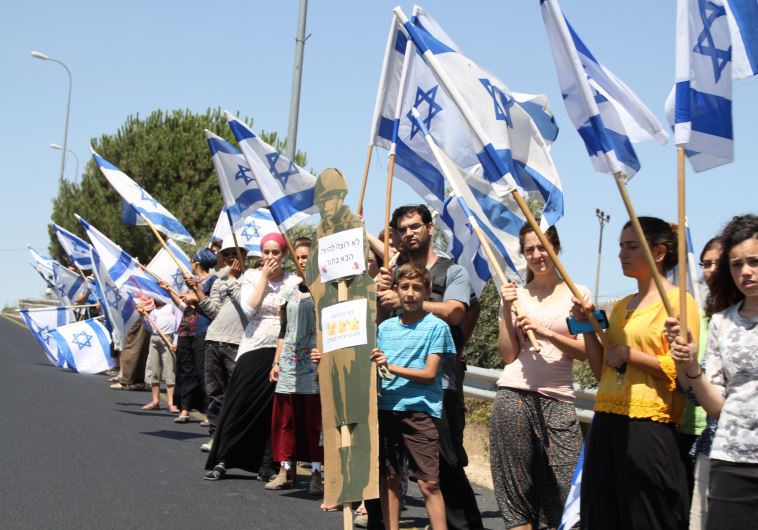The 16km stretch of West Bank road that has claimed the lives of 25 terror victims
Since 1994, Othniel has lost 12 people in terror or terror related incidents, 7 of them on that road.
 Settlers protest dangerous West Bank Roads(photo credit: JACK BRADY)Updated:
Settlers protest dangerous West Bank Roads(photo credit: JACK BRADY)Updated: